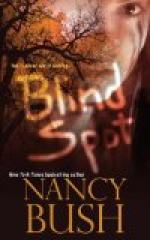“What’s the deep study?” I asked him.
He looked up. By his eyes I could see that his thoughts had been far away.
“What’s the deep study?” I repeated.
“I was just thinking, Harry; just thinking.”
“What?”
“I was just thinking, Harry, that I would like to have about one hundred thousand dollars and about ten years’ leisure.”
“That’s a nice thought,” I answered; “I could think that myself. What would you do with it?”
“Do? Why, there is just one thing that I would do if I had that much money. I would solve the Blind Spot.”
This happened years ago while we were still in college. Many things have occurred since then. I am writing this on the verge of disaster. How little do we know! What was the idea that buzzed in the head of Hobart Fenton? He is concrete, physical, fearless. He is in South America. I have cabled to him and expect him as fast as steam can bring him. The great idea and discovery of the professor is a fact, not fiction. What is it? That I cannot answer. I have found it and I am a witness to its potency.
Some law has been missed through the ages. It is inexorable and insidious; it is concrete. Out of the unknown comes terror. Through the love for the great professor I have pitted myself against it. From the beginning it has been almost hopeless. I remember that last digression in ethics. “The mystery of the occult may be solved. We are five-sensed. When we bring the thing down to the concrete we may understand.”
Sometimes I wonder at the Rhamda. Is he a man or a phantom? Does he control the Blind Spot? Is he the substance and the proof that was promised by Dr. Holcomb? Through what process and what laws did the professor acquire even his partial control over the phenomena? Where did the Rhamda and his beautiful companion come from? Who are they? And lastly—what was the idea that buzzed in the head of Hobart Fenton?
When I look back now I wonder. I have never believed in fate. I do not believe in it now. Man is the master of his own destiny. We are cowards else. Whatever is to be known we should know it. One’s duty is ever to one’s fellows. Heads up and onward. I am not a brave man, perhaps, under close analysis; but once I have given my word I shall keep it. I have done my bit; my simple duty. Perhaps I have failed. In holding myself against the Blind Spot I have done no more than would have been done by a million others. I have only one regret. Failure is seldom rewarded. I had hoped that my life would be the last; I have a dim hope still. If I fail in the end, there must be still one more to follow.
Understand I do not expect to die. It is the unknown that I am afraid of. I who thought that we knew so much have found it still so little. There are so many laws in the weave of Cosmos that are still unguessed. What is this death that we are afraid of? What is life? Can we solve it? Is it permissible? What is the Blind Spot? If Hobart Fenton is right it has nothing to do with death. If so, what is it?




